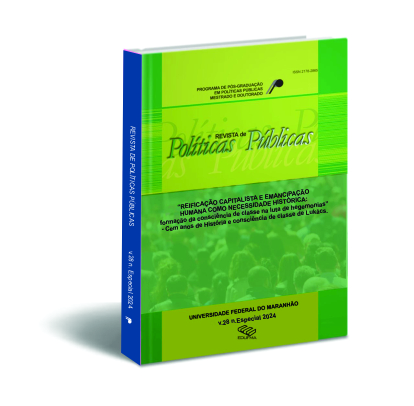DYNAMICS OF CAPITALIST ACCUMULATION IN THE AFTERMATH OF THE 2008 CRISIS AND LATIN AMERICAN INTEGRATION
DOI:
https://doi.org/10.18764/2178-2865.v28nEp.2024.8Keywords:
Capitalist Dynamics, regional integration, Latin America, Marxist Dependency Theory, 2008 Crisis, Global Poverty Chains, MercosurAbstract
The consequences of the 2008 Global Financial Crisis continue to show the limits of the omnipotence of capitalist financial globalization. To try to analyze the dynamics of capitalist accumulation in 2024, its conflicts, its social, environmental and political tensions, we need to go beyond the paradigms and recipes proposed decades ago by the dominant theories. This is no easy task in an era of fake news, concentrated media influenced by powerful neoliberal or ultraliberal economic and ideological interests, and ubiquitous social networks. The coherence of capitalist accumulation is now, in many cases, held together only by violence and inequality. This article discusses the integration of Latin America, and more specifically its Southern Cone (Mercosur), into the capitalist world economy. The first part presents a history of Latin American dependency,
focusing on a historical and critical theoretical approach. The second part focuses on the dynamics of Latin American and Southern Cone integration.
Downloads
Downloads
Published
How to Cite
Issue
Section
License

This work is licensed under a Creative Commons Attribution-NonCommercial-NoDerivatives 4.0 International License.
UNIVERSIDADE FEDERAL DO MARANHÃO
PROGRAMA DE PÓS-GRADUAÇÃO EM POLÍTICAS PÚBLICAS
REVISTA DE POLÍTICAS PÚBLICAS
Termo de Transferência de Direitos Autorais
Como condição para a submissão, os autores devem declarar a autoria do trabalho e concordar com o Termo de Cessão de Direitos Autorais, marcando a caixa de seleção após a leitura das cláusulas)
- Declaro que participei da elaboração do trabalho referido, em parte ou no todo; que não omiti qualquer ligação ou acordo de financiamento entre os autores e instituições ou empresas que possam ter interesses na publicação desse trabalho;
- Declaro tratar-se de texto original, isento de compilação, em parte ou na íntegra, de minha autoria ou de outro (os) autor (es);
- Declaro que o texto não foi enviado a outra revista (impressa ou eletrônica) e não o será enquanto a possibilidade de sua publicação esteja sendo considerada pela RPP;
- Declaro que transfiro os direitos autorais do trabalho especificado para a RPP, comprometendo-me a não reproduzir o texto, total ou parcialmente, em qualquer meio de divulgação, impresso ou eletrônico, sem prévia autorização dessa Revista.
- Declaro que tenho conhecimento que a cessão do texto à RPP é gratuita e, portanto, não haverá qualquer tipo de remuneração pela sua utilização.

Este obra está licenciado com uma Licença Creative Commons Atribuição-NãoComercial-SemDerivações 4.0 Internacional.







